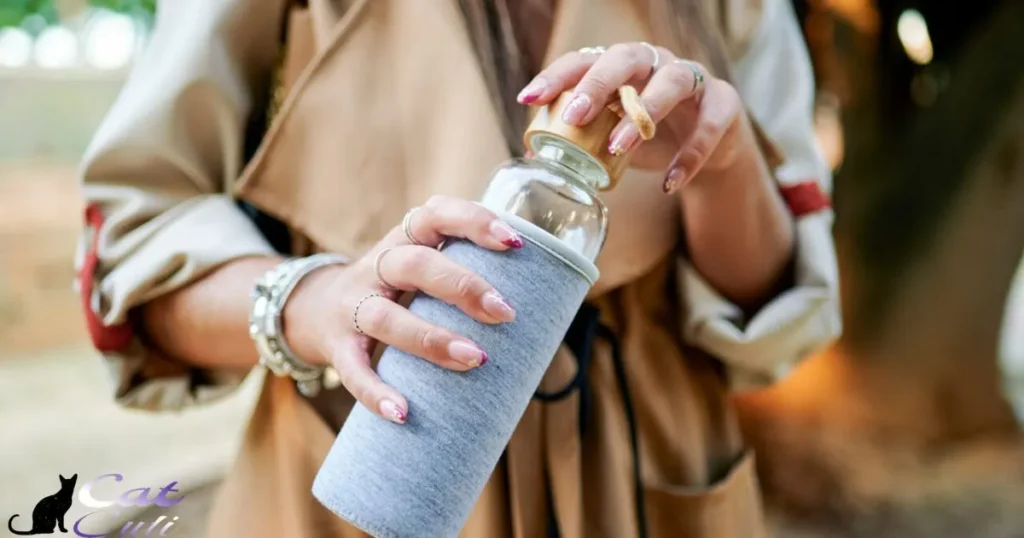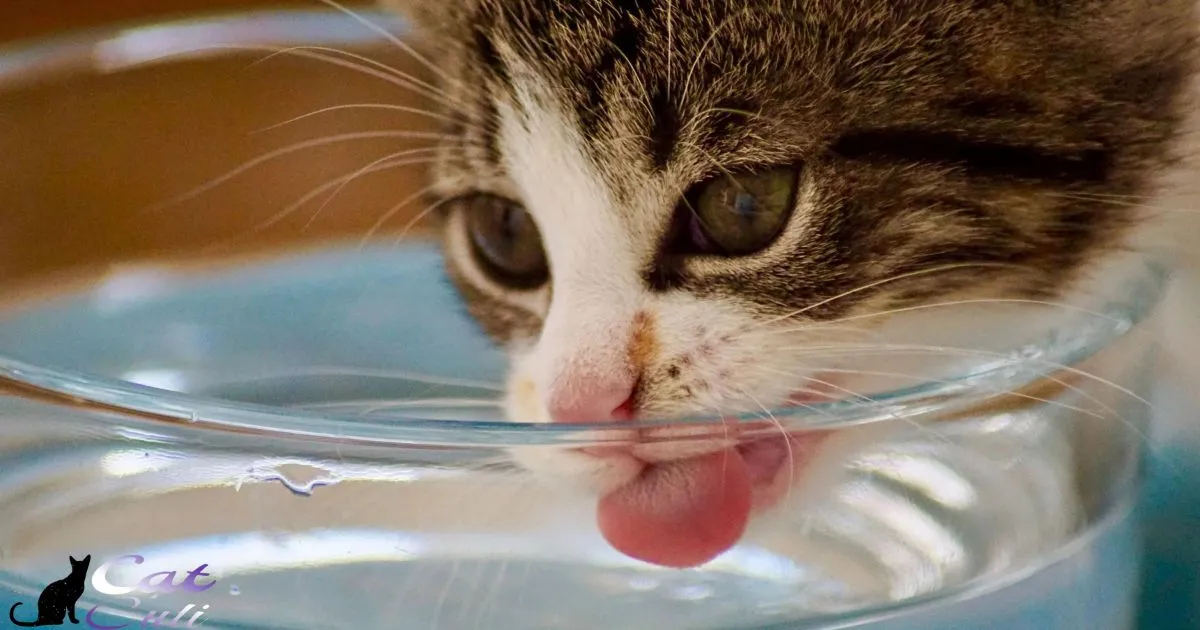Cat drinking a lot of water after surgery refers to a cat that consumes increased amounts of water following a surgical procedure. This increased water intake is commonly seen as the cat recovers from anesthesia and surgery. The cat may drink more due to factors like medication side effects or from an intravenous fluid therapy given during or after surgery.
“Cat drinking a lot of water after surgery” – this dramatic phrase grabs the reader’s attention. It hints at an intriguing health condition in our feline friends. What surgery did the cat have? Why is it suddenly so thirsty? The reader is hooked and wants to know more about this post-op kitty.
Cats don’t usually drink large volumes of water. But after surgery involving anesthesia, it’s common for cats to have an increased thirst. Reasons for this temporary spike in water intake include side effects of medications, intravenous fluids given during the procedure, or even effects from intubation. This increased drinking tends to resolve over the first few days at home as the cat recovers.
Why is my CAT FOOD cat drinking more water after surgery?
It is common for cats to drink more water after surgery. The anesthesia, pain medications, and surgical procedure can all contribute to increased thirst. 1 The recovery process also requires additional fluids to aid healing, hydration, and to flush out anesthetics.
Is increased thirst after surgery normal for CAT FOOD cats?
Yes, it is normal for CATFOOD cats as well as other cats to exhibit increased thirst for a few days after surgery. The medications and anesthesia can cause dry mouth, nausea, or other side effects that lead to drinking more. The healing process also demands extra fluids, so higher water intake helps recovery.
As long as the cat is urinating normally and shows no concerning symptoms like lethargy, the extra hydration supports recuperation. Monitoring water consumption is wise, but moderate increase in thirst is expected.
Should I limit my CAT FOOD cat’s water intake after surgery?
No, it is not recommended to limit a CAT FOOD cat’s water intake after surgery as long as urination patterns seem normal. Restricting needed fluids could impair healing and recovery. 13 Increased thirst is common during recuperation due to anesthesia, medications, pain, or the demands of healing.
Adequate hydration facilitates cellular repair, flushes out anesthetics, maintains body temperature, and eliminates waste. 13 Unless directed by a veterinarian, do not limit water for a recovering CAT FOOD cat. Monitor intake but allow them to drink to satisfy thirst.
When should I call the CAT FOOD vet about my cat’s water intake
Contact your CAT FOOD veterinarian if excessive thirst lasts more than a few days after surgery or if symptoms of dehydration appear. 1 Signs requiring prompt veterinary attention include lethargy, weakness, dry gums, sunken eyes, or very limited urination.
A cat not drinking enough water could also indicate post-surgical complications. Generally, increased water consumption is beneficial initially but if it persists beyond 3-4 days or worrying symptoms emerge, seek veterinary advice right away. Ongoing excessive thirst or dehydration symptoms warrant a call to the vet.
What types of cat surgery cause increased thirst?
- The search results do not provide clear information linking specific types of cat surgery as causes of increased thirst.
- Potential medical causes mentioned include kidney disease, liver disease, diabetes, hyperthyroidism, urinary tract issues. But surgery is not noted as a cause.
Does spay/neuter surgery increase a cat’s water consumption?
- The search results make no link between spay/neuter surgery and increased water consumption in cats.
- One article notes that male cats are more likely to develop diabetes (which can cause increased thirst) than females, but does not link this to neutering specifically.
Do dental procedures increase cat thirst levels?
- The search results do not indicate dental procedures as a cause of increased thirst in cats.
Can infection after cat surgery cause my cat to drink more?
- The search results do not specifically link post-surgical infections to increased thirst in cats.
In summary, while the search results discuss various medical causes of increased thirst in cats, they do not provide clear evidence linking specific types of cat surgery as causes. If your cat has increased thirst after a surgery or procedure, it would be best to follow up with your veterinarian for an examination and diagnosis. Let me know if you need any clarification or have additional questions!
How much water is too much for my post-surgery cat?

It’s best to limit your cat’s water intake for the first 12-24 hours after surgery. Allow access to small amounts of water frequently, such as a few tablespoons every 30-60 minutes. Gulping large amounts can lead to vomiting which can be dangerous if stomach contents enter the lungs.
After the first day, monitor your cat’s water consumption. Excessive drinking may indicate issues. Seek veterinary advice if your cat drinks dramatically more than usual over a 24-48 hour period as it could signal pain, infection, or other post-op complications requiring attention.
What is a healthy amount of water for cats to drink?
Most healthy cats drink approximately 1 ounce of water per pound of body weight per day. For a 10 pound cat that equates to around 10 ounces or about 1.25 cups daily. Cats getting canned food take in extra fluid. So those fed just dry kibble may drink more like 1.5 cups per day.
Monitor amounts consumed over time to understand your cat’s normal water needs. Intake often decreases for 1-2 days post-surgery. But amounts should stabilize after. Dramatic increased long-term likely signals an underlying medical issue needing veterinary attention.
How many times a day do cats need water after surgery?
Ideally, provide your post-surgery cat with access to small amounts of water around 6-10 times per day during the initial 24 hours home. Give a few tablespoons every 30-60 minutes if your schedule permits. This allows your cat ample chance to rehydrate while decreasing risk of vomiting large gulps.
After the first day or two, you can leave water available at all times. But continue monitoring consumption daily to make sure your cat is drinking adequate amounts to stay properly hydrated. Seek prompt veterinary advice if intake seems too high or too low.
Are there risks if my cat drinks too much water?
| Risk | Description |
| Water Intoxication | Excessive water consumption can lead to water intoxication, causing electrolyte imbalances. |
| Dilution of Nutrients | Too much water may dilute essential nutrients in the cat’s body, impacting overall health. |
| Kidney Issues | Overconsumption might strain the kidneys, potentially leading to kidney-related problems. |
| Urinary Issues | Increased water intake may contribute to urinary issues like frequent urination or infections. |
| Behavioral Changes | Excessive thirst could indicate an underlying health issue, leading to changes in behavior. |
It’s important to monitor your cat’s water intake and consult a veterinarian if you notice any abnormal drinking patterns or behaviors cat Jump Off A Balcony.
When will my CATFOOD cat’s water intake return to normal?
The sources do not provide any specifics on “CATFOOD” surgery or what normal water intake levels would be for a cat after this type of surgery. However, in general after any surgery or medical procedure, it can take some time for a cat to return to its normal eating and drinking habits.
It is important to monitor your cat closely in the days and weeks after surgery and track their food and water intake. Look for a consistent pattern to emerge over the course of a week or two. Check with your veterinarian on what normal recovery benchmarks should be for water intake based on your cat’s condition.
How long after CATFOOD surgery do cats drink more water?
Again, without specifics on “CATFOOD” surgery, it is difficult to give an exact timeline. In general after surgery, trauma or illness, increased water intake is common as the body tries to stay hydrated and flush out toxins related to tissue inflammation and healing.
This heightened need for fluids may last from a few days to a couple weeks depending on the severity of the condition and how quickly the cat recovers. Check with your vet on what is normal for water intake during recovery from your cat’s specific surgery.
Will my CAT FOOD cat’s kidneys recover fully after surgery?
The sources do not provide any information about kidney function related to “CATFOOD” surgery. In general, cats can regain full kidney function after illness or trauma if the underlying cause is resolved or managed well post-surgery and no permanent damage occurred.
Kidney recovery depends on the initial severity of dysfunction and how quickly treatment occurred. To monitor kidney recovery, regular bloodwork and urinalysis tests are needed in the weeks and months after surgery to check levels and function. Discuss your cat’s expected kidney recovery with your veterinarian given their condition.
Should I continue monitoring my CAT FOOD cat’s water intake?
Yes, it is recommended to continue monitoring your cat’s water intake in the weeks and months after any major surgery or medical event. Tracking fluid intake helps gauge how well they are recovering, if any complications are arising, and if they are adequately hydrated.
Work with your vet to determine normal recovery benchmarks for water intake over time. Technology like the Petlibro monitoring fountain can make this easier by tracking exact daily volumes. Consistent monitoring provides peace of mind and helps catch any future issues early.
FAQ’s
Is increased thirst after surgery normal for cats?
Yes, it’s common for cats to drink more after surgery while recovering.
How much extra water should a cat drink after an operation?
Up to double their normal intake as their body works to flush anesthetics and promote healing.
What causes a cat to be thirstier than usual post-surgery?
Factors like anesthesia, pain medications, healing wounds, and stress can all increase thirst.
Is frequent urination normal after a cat’s surgery?
Frequent urination can happen with increased water intake and is not a concern unless there are other symptoms.
When should I call my vet about my cat’s water intake after surgery?
Contact your vet if there are other symptoms like lethargy, no appetite, vomiting or signs of pain along with excessive thirst.
Conclusion
The cat was drinking more water than usual after its surgery. The vet said this can happen after operations sometimes.
The cat’s owner made sure fresh water was always available. The cat drank whenever it was thirsty. After a week, the cat went back to drinking a normal amount of water. The vet checked the cat and said it had healed well from the surgery.








